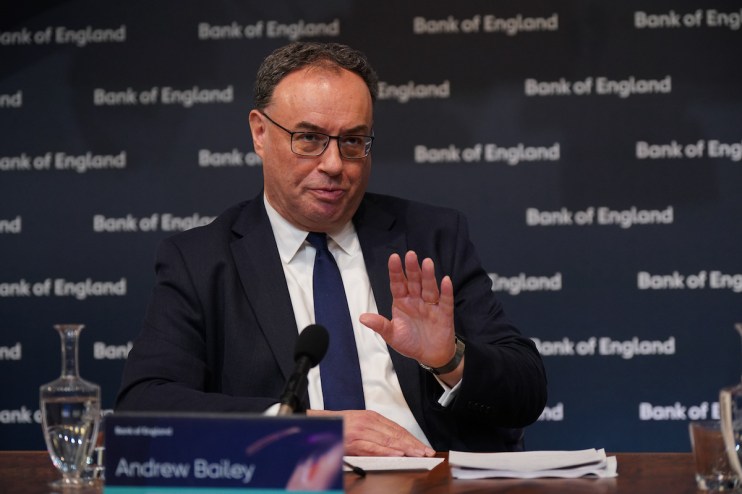Why rising wages will concern the Bank of England

Another interest rate hike looks all but certain after pay increased at the joint highest rate on record.
According to figures from the Office for National Statistics, annual pay growth excluding bonuses averaged 7.8 per cent between May and July.
With inflation coming down to 6.8 per cent in July, this means that households are seeing a boost in real income for the first time in over a year. But the Bank of England will be nervous.
While the 7.8 per cent reading was in line with expectations, it shows that wages are still increasing at record pace. Inflation will be unlikely to fall to two per cent while pay increases at such a fast pace because consumers will have more money to spend.
Rate-setters at the Bank have highlighted developments in the labour market as crucial for the future path of interest rates
Just yesterday, Catherine Mann warned that inflation is in danger of becoming embedded as firms and individuals increasingly adjust to the inflationary environment. She highlighted research that showed behaviour has changed “sufficiently to yield continued inflation persistence.”
Economists are therefore nearly certain that the Bank will hike rates again at September’s Monetary Policy Committee (MPC) meeting next week.
As Ashley Webb, UK economist at Capital Economics said, “the further rise in wage growth will only add to the Bank of England’s unease and supports our view that the Bank will raise interest rates once more.”
Similarly, Samuel Tombs, chief UK economist at Pantheon Macroeconomics, said: “The persistence of excessively vigorous wage growth in July probably means the MPC can’t stop raising Bank Rate at this month’s meeting.”
But is the end in sight?
Unemployment has increased faster than the MPC predicted, hitting 4.3 per cent – the highest level in nearly two years.
Tombs pointed out the three-month average vacancy-to-unemployment ratio—one of the most reliable guides for labour market tightness—declined to 0.71 in July, down from 0.72 in June. This is not too far above its 2019 average of 0.63 and well off its peak of 1.05 in August last year, when there were more vacancies than jobseekers.
All this suggests that wage growth might start to ease in the coming months.
Other surveys show that pay rises are beginning to slow thanks to increasing slack in the labour market. According to XpertHR, pay deals fell to 5.7 per cent following six consecutive quarters at a record six per cent.
Kitty Ussher, chief economist at the Institute of Directors, argued that the data was enough for the Bank to stop raising rates. “With today’s data showing a weakening labour market, it is now time for the Bank of England to keep interest rates on hold,” she said.
“Although wage inflation still feels high, the headline rate is now being driven by the recent public sector pay settlements which will not lead to cost pass-through on the part of their employers,” she added. “Private sector pay wage pressure, although also high, has grown at a lower rate in recent months and is likely to fall further as the labour market loosens and the headline rate of inflation comes down.”